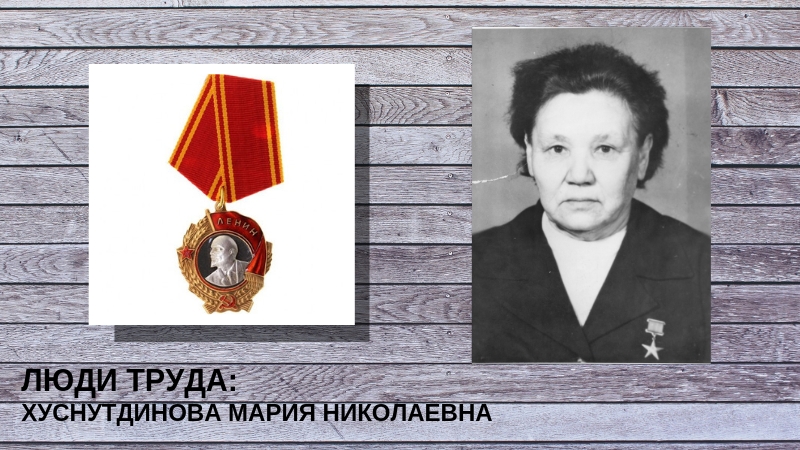Labor people: a teacher from Zainsky district who has found her vocation in agriculture

Today, the heroine of our column “Labor People”, in which we write about ordinary people who deserve honor and respect with their daily work is Khusnutdinova Maria Nikolaevna.
She devoted her whole life to her beloved work, she worked hard, was demanding of herself and others, for that she was loved and respected.
She was born the 10th May of 1920 in the village of Sarsaz-Bagryazh, Zainsky district. After graduating from the 8th grade, she entered the teacher's courses in Kazan. At the same time, combining work with study, she graduated from Elabuga Pedagogical School. From 1941 she worked as a primary school teacher in the village of Aksarino in her native district. She gave a lot of energy to raising children.
After World War II, when it was necessary to raise the destroyed national economy, Maria Nikolaevna changed her profession and became an agricultural worker, combining work with social activities.
Then local residents elected her as a chairman of the village council, for several years she headed the organization of the collective farm.
After the XXI Congress of the CPSU, many communists of the country, following the example of Valentina Gaganova, began to move to lagging production areas. Maria Nikolaevna changed her mind a lot before declaring her desire to head the lagging Aksarinskaya integrated brigade of the collective farm. With enthusiasm, the former teacher took up the case. At the heart of the management of the Aksarins from time immemorial was plant growing, and animal husbandry was based on it. And soon the collective was talked about in the area - in difficult weather conditions of 1964, the Aksarians got the best harvest in the district, having fulfilled the grain procurement plan ahead of schedule. The achievements of the brigade were presented at the USSR Exhibition of Economic Achievements, and the brigadier was awarded a bronze medal.
Much was done in Aksarin. The cattle-breeding complex was rebuilt again, it was completely mechanized. By the way, one of the first mechanized currents appeared precisely in the Aksarinsk brigade of the collective farm.
No less significant were the successes on the fields in the following years. Due to this, by 1966 in the local brigade the number of cows had doubled, the number of pigs raised in one and a half times and the productivity of animals sharply increased. The Aksarin brigade began to produce more than all three other collective farm brigades.
By decree of the Presidium of the Supreme Soviet of the USSR of June 23, 1966, for the success achieved in increasing the production and harvesting of agricultural products, Maria Nikolaevna Khusnutdinova was awarded the title Hero of Socialist Labor with the award of the Order of Lenin and the Sickle and Hammer gold medal. She was also awarded the medal “For Valiant Labor in commemoration of the 100th anniversary of the birth of V.I. Lenin ".
Year after year, she continued to work as a brigadier, rejecting proposals of leading positions. Continuing to conduct social activities, she was a delegate of the XXIII Congress of the CPSU (1966) and a deputy of the Supreme Council of the Tatar Autonomous Soviet Socialist Republic (1959-1966).
In memory of Maria Nikolaevna Khusnutdinova and in connection with the 90th anniversary of her birth the Aksarinsky Cultural Center was named after her.